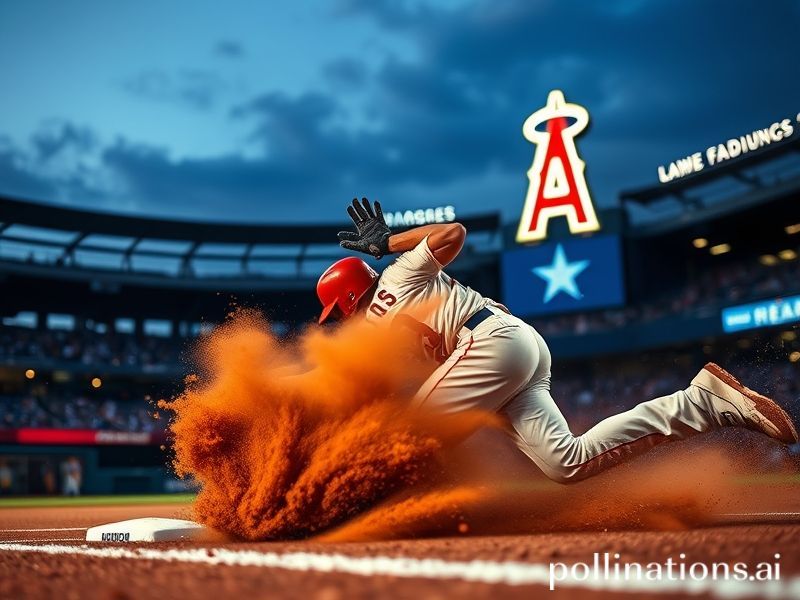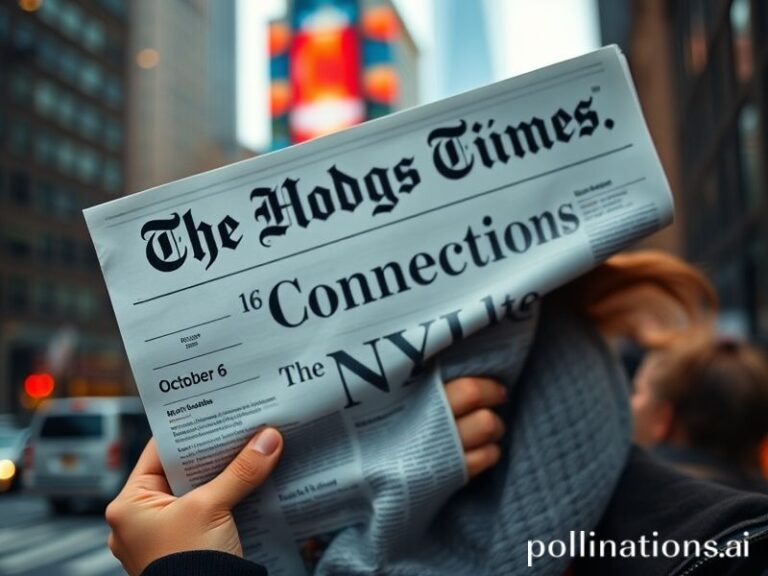Astros vs. Angels: How a Baseball Feud Became the World’s Favorite Morality Play
Astros–Angels: A Cosmic Blood Feud for an Age That Can’t Pick Between Heaven and Houston
Dave’s Locker | International Desk | 30 May 2024
In the beginning—if you ask an Angels fan—there was light, and it was pure California gold. Then the Houston Astros discovered the dark art of stealing signs, and the celestial halo above Anaheim tilted like a drunk tourist on Space Mountain. What began as a regional baseball grudge has since metastasized into a proxy war for every modern pathology: surveillance capitalism, selective memory, performative outrage, and the universal human urge to pretend that cheating is only cheating when the other guy does it.
The rest of the planet, busy juggling inflation, wildfires, and the slow-motion implosion of the Arctic, has watched this slow-burning border skirmish with the detached amusement usually reserved for British Parliament or a North Korean missile test. Yet the Astros–Angels rivalry has quietly become a Rorschach blot for the international spectator: choose your villain, choose your narrative, and slide the moral goalposts accordingly.
Consider the optics from abroad. In Tokyo, where every pitch is analyzed by three data-crunching monks and a Shinto priest, the Astros’ 2017 “Codebreaker” scheme looks quaint—like using a rotary phone to rob a bank. In Rio, fans shrug: if you’re not bending the rules, you’re not really dancing the samba. Meanwhile, Berlin’s sports sociologists file it under “late-capitalist decadence” and return to their real passion: explaining why 50+1 is morally superior to the Champions League.
But the story metastasized beyond trash cans and buzzers. When Shohei Ohtani—Japan’s two-way unicorn, human highlight reel, and walking soft-power campaign—chose Anaheim, the Angels became the de-facto national team of every sushi bar from Hokkaido to Harajuku. Houston’s subsequent dominance (2017–2022) felt, to the Japanese press, like watching Godzilla lose a custody battle to King Kong. Ratings spiked; conspiracy theories bloomed; an enterprising Osaka brewery released a limited-edition “Halo IPA” whose label art featured a seraphic Ohtani drop-kicking a trash can into low-Earth orbit.
Across the Atlantic, the Europeans—who long ago surrendered baseball to the Americans and now export coaches like artisanal cheese—observed the feud with the clinical interest of anthropologists studying ritualized violence. The French, naturally, sided with the Angels: Los Angeles sounds glamorous, and the Astros’ uniforms offend their sense of chromatic harmony. The British, ever contrarian, adopted Houston as a lovable rogue, the sort of cheeky blagger who’d nick the Crown Jewels and then apologize with a wink.
The geopolitical metaphor is almost too on-the-nose: a resource-rich Gulf state (Texas) leverages technology to tilt the playing field, while a sun-bleached coastal utopia (California) clings to moral high ground and an aging demographic. Swap crude oil for spin rate, sunscreen for sunscreen, and you’ve got yourself a CNN segment.
And still the world spins. While Ukrainian wheat fields burn and TikTok teaches teenagers to monetize grief, the Astros and Angels continue their nightly pas de deux, each game a referendum on whether justice delayed is justice denied or merely justice outsourced to a better algorithm. The International Olympic Committee, never one to miss a branding opportunity, has floated exhibition baseball in Brisbane 2032 with “enhanced replay ethics”—a phrase so Orwellian it could moonlight as a dating-app bio.
So here we are, citizens of a planet where satellite constellations blink like stolen signs and billionaires race to colonize Mars while we bicker over who banged which trash can first. The Astros–Angels rivalry is no longer about baseball; it’s about the stories we tell ourselves to endure late modernity—stories of innocence lost, redemption marketed, and the comforting illusion that someone, somewhere, still plays fair.
In the end, the standings will reset, the scandal will fade into trivia-night fodder, and the cosmos will remain indifferent. But somewhere in the nosebleeds of Minute Maid or the upper deck of Angel Stadium, a child is learning that angels can fall and astros can cheat, and that the line between sinner and saint is as thin as a 3-2 slider on the black. Welcome to the big leagues, kid. Bring a trash can—just in case.







